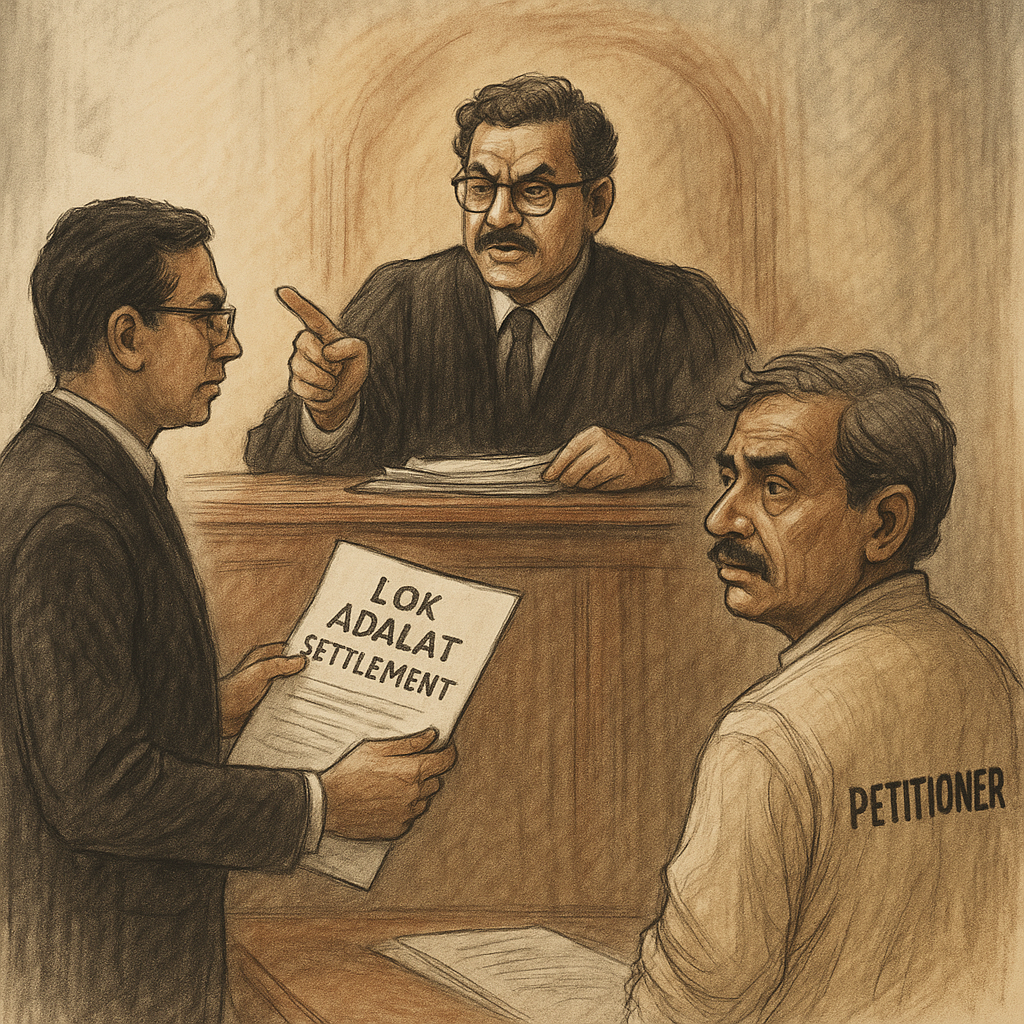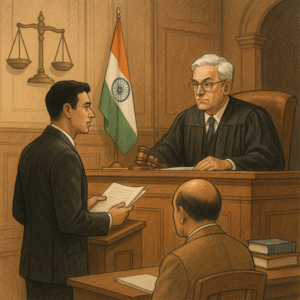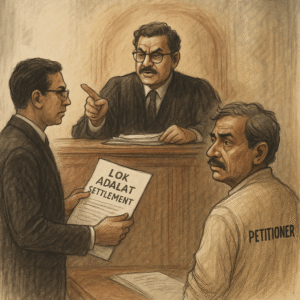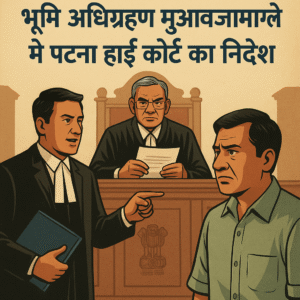Simplified Explanation of the Judgment
In this case, the Patna High Court dismissed a writ petition filed by a borrower who had challenged the recall of a Lok Adalat settlement order by the Debts Recovery Tribunal (DRT). The petitioner had initially defaulted on a loan, following which the bank initiated recovery proceedings and obtained a certificate for ₹34,01,934.21 with applicable interest.
Despite entering into a series of compromise agreements with the bank, including a ₹27 lakh settlement through a Lok Adalat in 2010, the petitioner repeatedly failed to make payments as agreed. Consequently, the DRT issued a recovery certificate in 2011 and proceeded with auctioning the mortgaged property.
Later, in 2014, during a Mega Lok Adalat session, the petitioner represented that only ₹96,134 was due and offered to settle the matter by paying an additional ₹20,000. Relying on this, a joint compromise was recorded and the case was kept in abeyance.
However, the bank later discovered that the actual outstanding was ₹52,07,624 and filed a Miscellaneous Application (M.A. No. 51/2015) to recall the 2014 Lok Adalat order, claiming it was based on misrepresentation. The DRT allowed the bank’s application and ordered continuation of the recovery process.
The petitioner challenged this recall order in the Patna High Court, arguing that Lok Adalat settlements are final and binding, and the DRT had no power to recall it. However, the High Court held that no formal “award” was prepared by the Lok Adalat and the compromise was not genuine, being induced by misrepresentation.
The Court upheld the DRT’s power to recall orders made under a factual mistake or fraud, emphasizing that banks, as custodians of public funds, cannot be compelled to accept ill-informed settlements that hurt public interest.
Significance or Implication of the Judgment
This judgment is significant for banks, financial institutions, and public interest. It reinforces that compromises based on misrepresentation or factual errors can be set aside, even if initially recorded during alternative dispute resolution processes like Lok Adalats.
It also sends a strong message to borrowers that misuse of legal processes and repeated defaults—despite indulgent terms—will not shield them from recovery proceedings. Moreover, the Court affirmed that public institutions, especially banks dealing with public funds, have an overriding obligation to act in the best financial interest.
Legal Issue(s) Decided and the Court’s Decision
- Can a Lok Adalat order be recalled if based on misrepresentation?
- Decision: Yes. The DRT can recall such orders if induced by fraud or mistake of fact.
- Is the DRT bound to accept settlements not properly verified or resulting from error?
- Decision: No. A valid settlement must be genuine and supported by accurate records.
- Can the DRT ignore a prior certificate of recovery while entertaining subsequent compromise applications?
- Decision: No. A recovery certificate, once issued and unchallenged, remains valid and must be considered.
Judgments Referred by Parties (with citations)
- Tarsem Singh v. Sukhminder Singh, AIR 1998 SC 1400
- State of Punjab v. Jalour Singh, (2008) 2 SCC 660
- P.T. Thomas v. Thomas Job, (2005) 4 SCC 46
Judgments Relied Upon or Cited by Court (with citations)
- Indian Bank v. Blue Jaggers Estates Ltd., (2010) 8 SCC 129
- Bharvagi Constructions v. Kothakapu Muthyam Reddy, AIR 2017 SC 4428
- Rajeev Kumar Singh v. Chairman, Indian Bank, 2017 (3) BLJ PHC 268
- Dr. Shashi Prateek v. Charan Singh Verma, AIR 2009 All 109
Case Title
[Name Redacted] v. Assistant General Manager, State Bank of India & Ors.
Case Number
CWJC No. 19502 of 2016
Citation(s)
2020 (1) PLJR 128
Coram and Names of Judges
Hon’ble Mr. Justice Rajeev Ranjan Prasad
Names of Advocates and who they appeared for
- Mr. Arbind Kumar Jha — Advocate for the petitioner
- Mr. Sanjiv Kumar — Advocate for the respondents
Link to Judgment
https://patnahighcourt.gov.in/viewjudgment/MTUjMTk1MDIjMjAxNiMxI04=-iPsavojWEeY=
If you found this explanation helpful and wish to stay informed about how legal developments may affect your rights in Bihar, you may consider following Samvida Law Associates for more updates.







